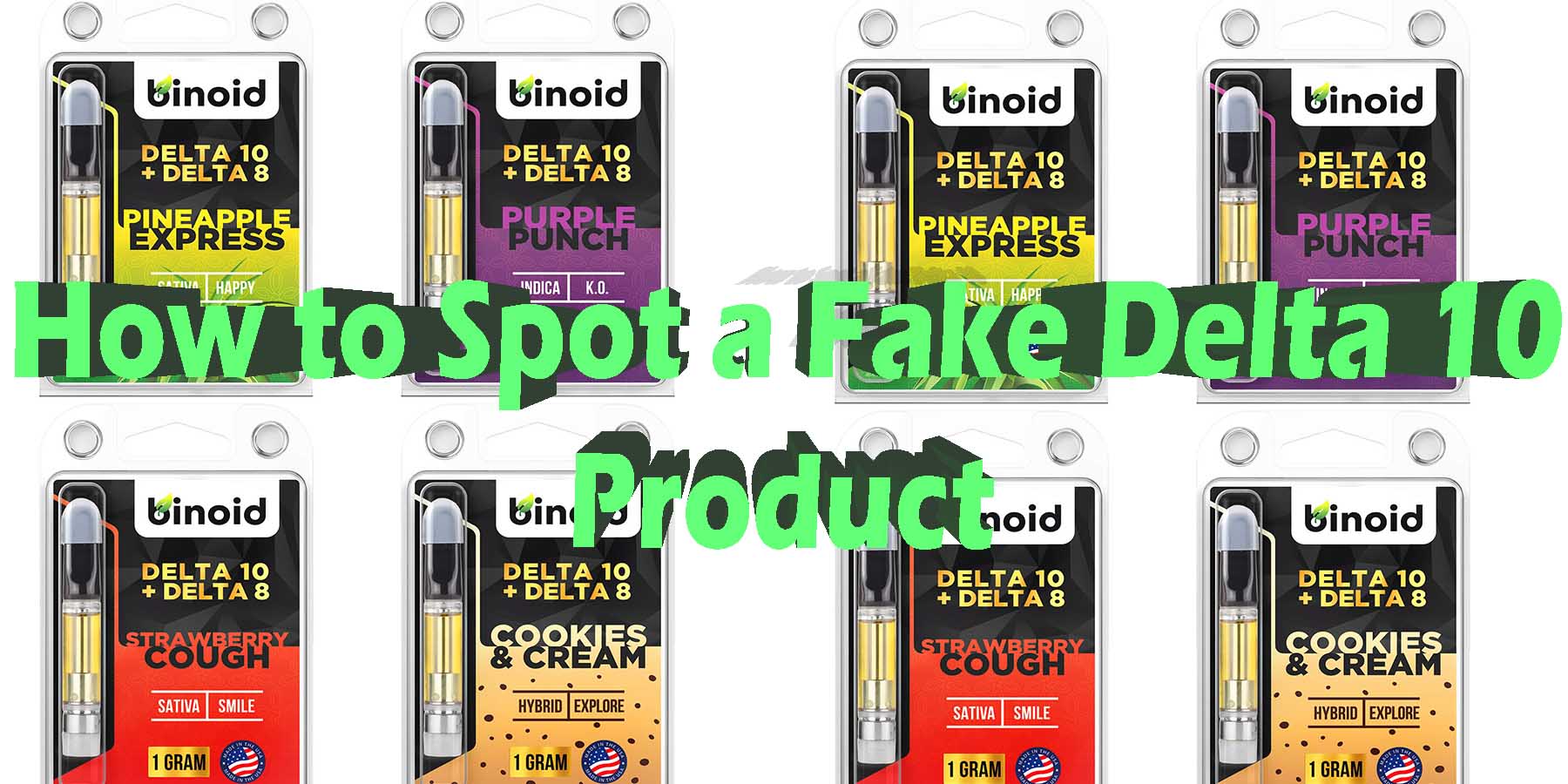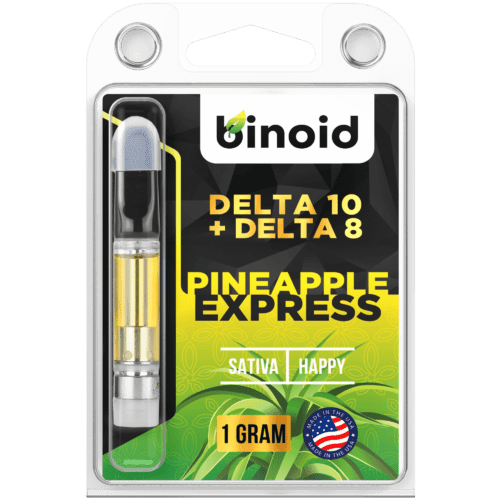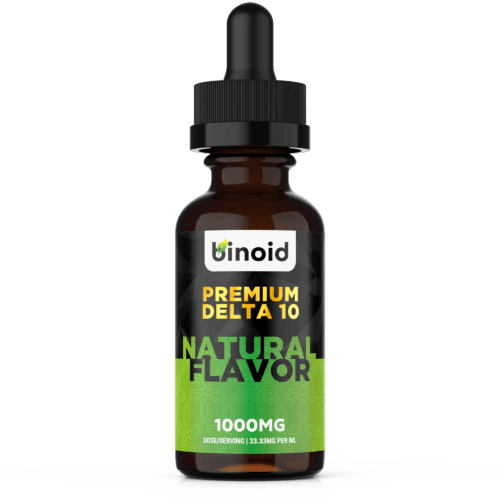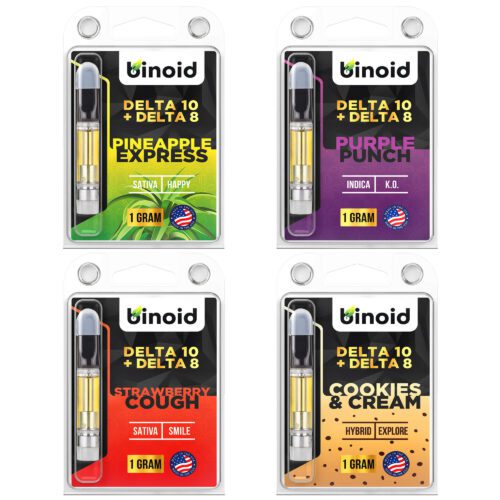
How to Spot a Fake Delta 10 Product
Delta 10 THC is still a fairly new cannabinoid on the hemp market, and one that many hemp enthusiasts are eager to explore thanks to its mild psychoactive buzz and uplifting effects commonly compared to the properties of popular sativa strains.
With any new cannabinoid, however, comes the need for customers to be extra discerning when it comes to which products they buy. As customers who are new to delta 10 have no point of reference, it can be hard to compare the quality of different products, and even worse, it’s that much easier to unintentionally end up with an altogether fake delta-10 formula.
To buy Delta 10 THC Products Click Here
How Common are Fake Delta 10 Products?
At the end of the day, it is hard to really know how much delta 10 that’s being sold is fake. Shady companies emerge all the time, and it can be difficult to keep track of them. Because fake delta 10 is usually sold through the black market, they’re even harder to pin down, and unfortunately, some of these fakes can end up being distributed by well-meaning vendors who just can’t tell the difference.
What we can say is that there will always be fake hemp products, as hemp is an in-demand market that less-than-reputable businesses can easily exploit. Not to mention, there will always be new, naïve customers that simply don’t have enough knowledge to know that they are handling a counterfeit product. Fake delta 10 THC is not unique to one product type, either. It can be found in the form of tinctures, edibles, vapes, and all basic delivery methods.
What Can Make a Delta 10 Product Fake?
It’s important to clarify what is considered a “fake” delta 10 product. There are actually a few ways in which a delta 10 product cannot be genuine.
- Delta 10 THC might be derived from marijuana rather than hemp.
- May contain harmful ingredients despite it actually containing delta 10, meaning that it does not align with safety standards that the industry works so hard to maintain.
- The product may carry no delta 10 THC at all, thus completely duping customers altogether.
Now, the three main types of fakes that you may encounter are:
#1: Marijuana-Derived
Delta 10 THC may be more abundant in the marijuana plant than in the hemp plant, thus making some brands think that it’s easier to produce marijuana-derived delta 10. The problem is that marijuana-derived delta 10 products are strictly illegal, while hemp is a fully legal plant throughout the United States. Therefore, while the delta-10 itself is legitimate, the company is being extremely dishonest about what they are selling.
#2: No Delta 10 THC
Yes, companies can technically get away with selling products that they claim to be made with delta 10 THC, despite there being zero delta 10 present. These companies may not get very far on the market since any experienced user will likely know right away that something is wrong with one of their products, but they may be able to thrive on the black market where they are hard to trace and therefore less likely to experience repercussions.
#3: Dangerous Ingredients
While delta 10 products containing harmful ingredients technically do contain delta 10 THC, we consider them to be fakes since they are illegitimate in the sense that they do not adhere to the strict industry-wide standards that companies like Binoid have devoted their lives to maintaining. Companies can, sadly, formulate their delta 10 with a wide array of ingredients, with some being more harmful than others. Black market brands can get away with failing to adhere to any safety standards, since their products are not sold in conventional stores that can be held accountable for their customers experiencing harmful effects. A historical example of black-market products containing harmful ingredients is the wave of pneumonia instances that resulted from vaping THC cartridges made with Vitamin E, a known danger to the lungs when inhaled.
How to Know Whether or Not a Delta 10 THC Product Might be Fake
Now that we have gone into considerable detail about the different types of fakes on the market, we want to reassure you that there’s no need for alarm. There are some simple ways to both identify and completely avoid fake delta 10 products.
Tip #1: Look for Third-Party Lab Reports from a Certified Laboratory
Overall, the best way to confirm the legitimacy of a delta 10 product is to look for the lab reports that are provided by a delta 10 brand. These lab reports should be provided on a company’s website. They are the unbiased reports that result from a third-party laboratory analysis of the delta 10 used by the company. They clearly confirm the validity of the delta 10 THC.
Note: Lab reports are only valid if they come from a licensed laboratory. You can look up the name of the laboratory, which is found at the top corner of the lab report. This way, you can verify that the laboratory is licensed to analyze hemp samples.
Tip #2: Choose a Licensed Vendor
You can largely avoid buying fake delta 10 by strictly refusing to purchase from unlicensed vendors. This means avoiding delta 10 THC that’s not sold by a licensed business, either online or in person. Places where you may run into unlicensed vendors include flea markets, Craigslist and social media platforms not managed by an established hemp brand.
Tip #3: Look for Transparency
The hemp industry in general holds itself to high standards, and companies therefore have a tendency to offer a lot of transparency on their website, providing information about where their hemp comes from, how the delta 10 is extracted, which ingredients they use and so on. The more transparent a company is, the less likely it is that they are selling fake products.
Tip #4: Avoid Businesses that Don’t Specialize in Hemp Products
Keep in mind that legitimate businesses could be unintentionally selling fakes because they simply don’t have the knowledge to tell the difference. This is why it may be useful to avoid any vendor that doesn’t specialize in hemp, and therefore has expert knowledge on delta 10 products. This includes gas stations, convenience stores, and vape shops.
Tip #5: Look at the Label
Looking at the label of a particular delta 10 product can give you a lot of clues into its legitimacy.
- There should always be a way to reach out to the brand, whether it be a website or a phone number. Companies that sell fakes are unlikely to provide this since they don’t want to be easily identified.
- Another thing to look at is the wording. Typically, illegitimate brands are not going to put a lot of effort into their labels, and therefore there will be more grammar and spelling issues. Delta 10 products are required to clearly state the ingredients and suggested serving sizes on their labels, so if this info is missing, that’s a red flag.
- Finally, if a delta 10 label gives you little information about what’s inside, such as the milligram strength or strain, that’s another red flag.
Don’t End up with Fake Delta 10 Products
Although ending up with a fake delta 10 product can range from annoying to dangerous, the good news is that you can avoid these products by buying from a trusted brand, directly through their website. At Binoid, we take pride in offering only lab-tested, high-quality delta 10 THC that you can count on when it comes to authenticity.




